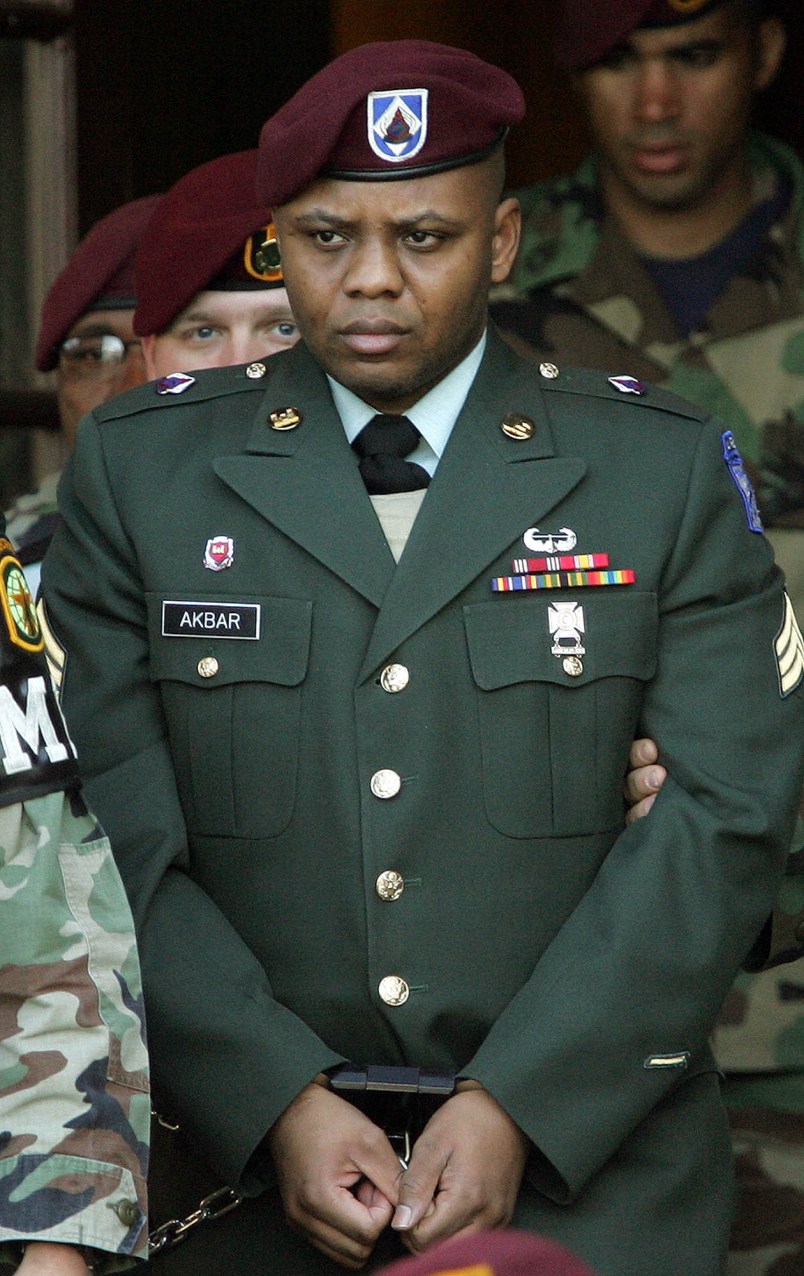A former U.S. soldier sentenced to death for killing two fellow soldiers and injuring 14 others in an attack in Kuwait is pinning his hopes of staying alive on an argument jurors should have never seen his diary.
Attorneys for 43-year-old Hasan K. Akbar argued on Tuesday that the one-time sergeant’s writings, which include details of how he converted to radical Islam, were so inflammatory, that without the proper context, jurors were most likely to focus on the most damaging parts while considering whether to impose a death sentence.
“They didn’t present the information in any meaningful way,” said Lt. Col. John Potter, a military lawyer arguing the case for Akbar before the U.S. Court of Appeals for the Armed Forces in Washington.
Akbar was with the 326th Engineer Battalion of the 101st Airborne Division based at Fort Campbell, Kentucky, when he was sentenced to death in 2005. He killed Army Capt. Christopher S. Seifert and Air Force Maj. Gregory L. Stone in Kuwait two years earlier during the early days of the Iraq war.
Prosecutors say he threw four hand grenades into tents as members of his division slept, then fired his rifle at soldiers in the ensuing chaos on March 23, 2003. A military jury at Fort Bragg, North Carolina, convicted Akbar and handed down the sentence. The military has not carried out an execution since 1961. Akbar is one of five ex-soldiers facing a death sentence, the only one for actions in the Iraq war.
Potter told the judges the defense failed to prepare witnesses and errantly let jurors see Akbar’s diary, which contained multiple anti-American passages.
Potter said allowing the jury to read the diary “eviscerated the defense in any meaningful way.”
“We think the diary, there’s no tactical reason to submit the diary,” Potter said.
In one entry dated Feb. 23, 2002, Akbar wrote that he believed staying in the Army would eventually lead him to prison.
“I had a premonition that if I re-enlisted I would find myself in jail. That is probably true because I already want to kill several of them,” Akbar wrote of his fellow soldiers.
The judges hearing the case focused on how the diary fit into the rest of the defense strategy, asking whether attorneys did anything to put the passages in the context of Akbar’s pre-military life or any mental issues he may have had.
Potter noted that the defense put on 38 minutes of mitigation evidence and argument and didn’t present any testimony from his family to humanize him. Instead, the lawyers failed by letting jurors pick through the diary and focus on the passages that left their client in the worst possible light.
Prosecutors said Akbar’s defense attorneys acted in his best interest to try and prevent a death sentence from being issued in one of the “most egregious offenses in modern military history.” The defense attorneys focused on the most viable arguments and witnesses, Maj. Kenneth Borgnino said.
Prosecutors noted that much of Akbar’s family likely wouldn’t have made a good impression on the witness stand.
The judges did not indicate when a ruling would be issued.
______
Follow Associated Press reporter Brett Barrouquere on Twitter: http://twitter.com/BBarrouquereAP
Copyright 2014 The Associated Press. All rights reserved. This material may not be published, broadcast, rewritten or redistributed.







Open and shut case. Treason , death.
Well this is ballsy…but likely futile.